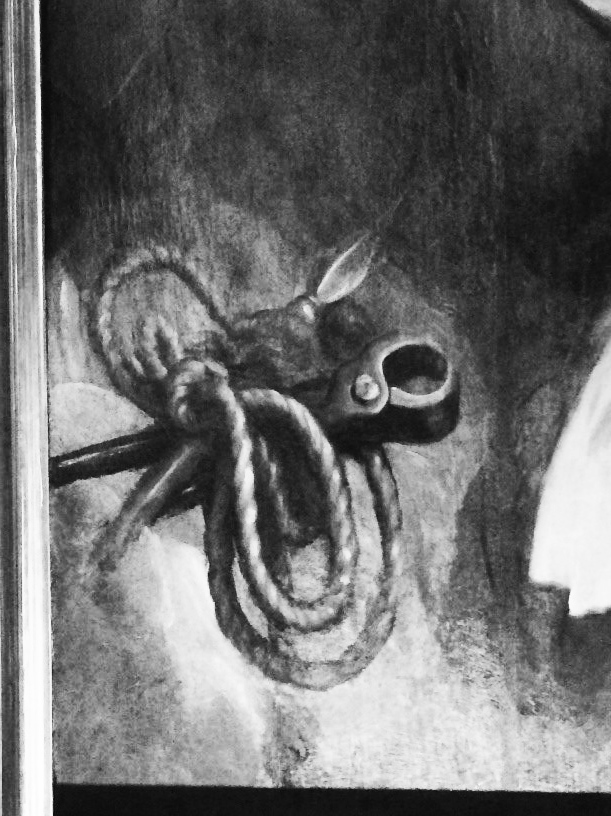Lent - Day 35
Posted on: April 4, 2020
by: Gerrit Dawson, Senior Pastor
by: Gerrit Dawson, Senior Pastor
Day 35 Saturday
JOSEPH OF ARIMATHEA
That which we have seen and heard we proclaim also to you, so that you too may have fellowship with us; and indeed our fellowship is with the Father and with his Son Jesus Christ (1 John 1: 3).
FOLLOWING THE SCRIPT
Luke 23: 50-56
Now there was a man named Joseph, from the Jewish town of Arimathea. He was a member of the council, a good and righteous man, who had not consented to their decision and action; and he was looking for the kingdom of God. This man went to Pilate and asked for the body of Jesus. Then he took it down and wrapped it in a linen shroud and laid him in a tomb cut in stone, where no one had ever yet been laid. It was the day of Preparation, and the Sabbath was beginning. The women who had come with him from Galilee followed and saw the tomb and how his body was laid. Then they returned and prepared spices and ointments.
On the Sabbath they rested according to the commandment.
John 19: 38-42
After these things Joseph of Arimathea, who was a disciple of Jesus, but secretly for fear of the Jews, asked Pilate that he might take away the body of Jesus, and Pilate gave him permission. So he came and took away his body. Nicodemus also, who earlier had come to Jesus by night, came bringing a mixture of myrrh and aloes, about seventy-five pounds in weight. So they took the body of Jesus and bound it in linen cloths with the spices, as is the burial custom of the Jews. Now in the place where he was crucified there was a garden, and in the garden a new tomb in which no one had yet been laid. So because of the Jewish day of Preparation, since the tomb was close at hand, they laid Jesus there.
CAST NOTES
Joseph does not appear until the very end of the gospels. He was an incognito disciple of Jesus. He had a place on the ruling Sanhedrin council, so for political reasons he had kept his loyalty hidden. He only makes his devotion to Jesus known after it is too late! The council had condemned Jesus; Jesus had been executed. Standing for him after the fact made no sense. Jesus needed supporters at his trial, not after. Jesus was gone, and nothing was to be gained by showing open belief. Joseph was committing political and social suicide, and so was his friend Nicodemus.
So why did he use, and risk, his position to approach Pilate? Why did he expose himself as a follower of Jesus as he helped take the body down? Why did he bring scandal on his family by placing the body of a condemned criminal in his own tomb? Why did he go to the expense when it was too late for the cause of Jesus?
Only love could have made him do it. The grief of deep love led him to cast caution to the wind. Passion made precious an otherwise useless gesture of loyalty. Without Jesus in the world, Joseph no longer cared what happened to him. All he cared about was honoring Jesus in his burial.
We have known this impulse: when we spent extravagantly on a funeral; when, albeit too late, we stood up for a friend who had been unjustly dismissed; when we remodeled a home just because our departed spouse would have loved it.
In the end, of course, Joseph provided a unique, known tomb for Jesus rather than the dung heap or an unmarked pauper’s grave. That meant when Jesus rose, there was a precise empty tomb to show the world. And Joseph’s love was not wasted.
PRAYING IN CHARACTER
Too late to speak.
Too late to stop them.
Lord, I tried to work quietly behind the scenes.
But I was only protecting myself.
For what?
Without you, nothing I have matters.
This world is dead to me.
These positions a joke.
I know I could not save you anyway,
There were too many of them,
But I ache to have tried harder.
No more hiding!
I will get you off that cross.
Gently, with dignity that befits a king.
I will save your body from the dogs and the gawkers.
You shall have my burial place.
I will tend your tattered form
With all my love and care,
With all the power at my disposal.
Too late, I know, to save you
But not too late to let them know
I am yours, and I will love you forever.
These are written so that you may believe that Jesus is the Christ, the Son of God, and that by believing you may have life in his name (John 20: 31).
ENCORE

.jpg) These pliers indicate the horror of the task Joseph of Arimathea undertook. We read so quickly that he took down Jesus’ body from the cross. But crucified victims were affixed to the wood. Jesus had been spiked in the hands and feet. These thick, Roman nails had to be pried from the wood so the body could be removed. Amidst wracking grief, Joseph and any who helped him would have had to exercise brute strength simultaneously with tender care. They did not want to tear Jesus any further. This process was not immediate. It was awkward, public and intense. As you look at this picture, seeing Jesus resting in the invisible arms of his Father, note how Cigoli brings us back to the real-world labor of Joseph’s love for Jesus. He had to remove the spikes to care for his Savior in burial.
These pliers indicate the horror of the task Joseph of Arimathea undertook. We read so quickly that he took down Jesus’ body from the cross. But crucified victims were affixed to the wood. Jesus had been spiked in the hands and feet. These thick, Roman nails had to be pried from the wood so the body could be removed. Amidst wracking grief, Joseph and any who helped him would have had to exercise brute strength simultaneously with tender care. They did not want to tear Jesus any further. This process was not immediate. It was awkward, public and intense. As you look at this picture, seeing Jesus resting in the invisible arms of his Father, note how Cigoli brings us back to the real-world labor of Joseph’s love for Jesus. He had to remove the spikes to care for his Savior in burial.
Posted in:




 Close
Close




5.jpg)





